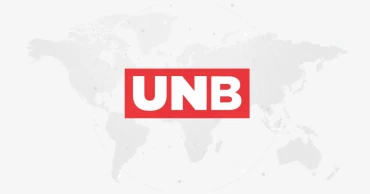BPC
Tk 8,300 crore Single Point Mooring with double pipeline failing to utilise full capacity
The Tk 8,300 crore Single Point Mooring (SPM) with double pipeline project is failing to utilise its full capacity due to non-expansion of the country's refinery capacity.
According to official sources, the newly installed SPM can now hardly utilise 60 percent of its capacity while around 40 percent remains unutilised.
The SPM project took about nine years to implement and now the project has been operational recently through execution of a test-run. But formally the project will be completed in June this year, said an official of the Bangladesh Petroleum Corporation (BPC).
Officials informed that after recent commissioning of the SPM project, now it takes only 48 hours to transfer the imported petroleum from the mother vessel to storage tanks.
Before setting up the SMP, it took 11 to 12 days to bring the imported fuel to the oil tanker of Eastern Refinery Limited at Petenga area through lighterage ships, which is very time-consuming, expensive, and risky.
Currently, no lighterage is required to carry fuel from the mother vessel, which is now moored at the outer quay, after the implementation of the project, said the officials.
2 KNF operatives killed in army operation in Bandarban: ISPR
The SPM was built on over 90 acres of land under a G2G project of Bangladesh and China at a cost of Tk 8341 crore at Maheshkhali Upazila in Cox's Bazar.
Officials said that there are three tanks having a storage capacity of 1.80 lakh kilolitre crude oils and three tanks with 1.08 lakh kilolitre furnished oil.
Project director of the SPM Sharif Hasanat admitted that the project's 30-40 percent capacity remained unutilised because of the limitations in refining more crude oils.
He informed that Bangladesh annually imports about 4.5 million metric tons of refined oils and another 1.5 million metric tons of crude oil from abroad.
"Through handling the imported oils, the SPM project now utilises 60 percent of its capacity," he said, adding, if more crude oils are imported SPM can be used for transportation purpose.
Officials said the government has undertaken a project to expand the capacity of the country's only refinery --the Eastern Refinery at Patenga with the title ERL-2 to increase the existing capacity by 3 million metric tons.
But that project has not been implemented in the last 14 years since the project was conceived by the Bangladesh Petroleum Corporation (BPC).
According to official sources, BPC was considering a technical offer of Technip, a French engineering company, which was engaged through an unsolicited process for creating Front End Engineering Design (FEED) involving Tk 371.81 crore for the proposed ERL unit-2 through a contract signed in January, 2017.
But Technip has left and a local company is trying to persuade the government to implement the ERL-2 project through public-private partnership (PPP) although that private company has no experience in implementing such a project, said a top official of the BPC.
Teen gang leader killed in Chattogram over ‘establishing dominance’
The Unit-2 project was taken by BPC in 2010 to enhance the company’s capacity to 4.5 million metric tons by adding 3 million metric tons from the new one.
The Unit-1 of the ERL, was installed in 1968 by the same French company, has an annual production capacity of 1.5 million metric tons.
Recently, an Indian firm claimed that it will be involved in the project to implement it at a cost of US 1.7 billion dollars over a period of next three years.
Officials said when BPC conceived the idea of ERL Unit-2 in 2010, the project cost was estimated at Tk 13,000 crore. Then, the project’s cost was raised to Tk16,739 crore in a revised proposal.
But now, the cost may cross Tk 18,000 crore, he said adding that BPC has sent a new development project proforma (DPP) to the Planning Commission through the Energy and Mineral Resources Division (EMRD) seeking another revision to the cost.
The country consumes about 6-6.5 million metric tons (MTS) of petroleum of which 4.8-5 million MTS is imported as refined one while the remaining 1.2-15 million MTS as crude oil to refine those at ERL.
Read more: Bangladesh to import 1.5mn metric tons of crude oil from Saudi Aramco, UAE’s Adnoc
1 year ago
Bangladesh to import 1.5mn metric tons of crude oil from Saudi Aramco, UAE’s Adnoc
Bangladesh will import 1.5 million (15 lakh) metric ton of crude oil from Saudi Arabia and United Arab Emirates (UAE) for the year 2024.
The Cabinet Committee on Economic Affairs (CCEA) in a virtual meeting, with Finance Minister AHM Mostafa Kamal, in-principle approved a proposal in this regard.
As per proposal of the state-owned Bangladesh Petroleum Corporation (BPC), moved by the Energy and Mineral Resources Division of the Ministry of Power, Energy and Mineral Resources, the crude oil will be imported through direct purchase method (DPM) which means there was no tender or competitive bidding process in selecting the supplier.
Dhaka urges Riyadh to consider crude or refined oil on deferred payment basis
The proposal mentioned that Saudi Aramco and UAE-based Adnoc will supply the total crude petroleum.
While briefing reporters about the outcomes of the Cabinet body's meeting, additional secretary of the Cabinet Division Sayeed Mahbub Khan informed that the cost or price of petroleum was not mentioned in the proposal as it came for in-principal approval.
Bangladesh needs to import about 6.5 million metric ton of petroleum oil annually. Of this, about 1.5 million is crude and the remaining amount is refined petroleum.
Glitch in brand new pipeline halts transfer of crude oil from mother vessel in Maheshkhali
The Cabinet body approved, in-principle, another proposal -- of Bangladesh Hi-Tech Park Authority under the Department of Information and Communication Technology -- to appoint a private company for operation and maintenance work of its “Vision 2041 Smart Tower” in Kawranbazar, Dhaka. The company will operate the building under the "Digital Entrepreneurship and Innovation Eco-System" project after its construction work.
2 years ago
Strict action to be taken from Monday if filling station owners’ strike not withdrawn: BPC
Director of Bangladesh Petroleum Corporation (BPC) Anupam Barua has said that the organization is monitoring the petroleum fuel supply situation in the country and strict action will be taken if the petrol pump owners do not call off the ongoing strike.
“Strict action will be taken from tomorrow (Monday) if the filling station owners’ strike is not withdrawn and fuel supply is disrupted across the country,” said while addressing a press conference at the Boardroom of the Jamuna Oil Company, a subsidiary of the BPC, on Sunday, in the city.
He said some of the demands of the petrol pump owners have been met while the rest are under consideration.
“The government has taken time till September 30. So, any movement in this situation is unacceptable,” he told reporters.
Meanwhile, leaders of a faction of Bangladesh Petrol Pumps Owners Association (BPPOA) has claimed that the leaders of other faction who have called strike are “nobody of the organization”. “Those leaders were expelled from the organisation for their misappropriation of funds,” said Nazmul Haque, president of the faction of BPPOA which opposed the strike.
BPC incurs Tk 63 crore loss a day in petroleum sale, but experts suggest cut on import duty
“Since, the government has already met one of our three demands and assured for meeting the other two within September 30, we don’t support this strike”, he said while addressing at a press conference in the Jamuna Oil’s meeting room in the city on Sunday.
Earlier, the faction of the BPPOA, led by Syed Sazzadul Karim Kabul and Mizanur Rahman Ratan, president and secretary general respectively, announced the strike programme at a press conference at Dhaka Reporters Unity on August 27.
They said that the members of the organisation will begin the strike for an indefinite period at the petrol pumps from September 2 unless their demands are met by August 31.
BPDB’s extra purchase order of petroleum puts BPC in trouble
As a result, an indefinite strike called by fuel traders in Khulna is underway since this morning (September 03, 2023) to realise their three-point demand including hiking commission on fuel sales.
Moving fuel from Padma, Jamuna and Meghna oil depots has remained suspended since 8 am.Bangladesh Tank-Lorry Owners’ Association, Bangladesh Fuel Oil Distributors Association, Khulna Divisional Tank-Lorry Workers’ Union and Padma, Meghna and Jamuna Tank-Lorry Workers’ Welfare Association are observing the strike.
BPCC protests vandalisation of idols and arrest of Gouranga
Their demands include raising commission on fuel sales to at least 7.5 percent, setting the tank-lorry economic life to 50 years, and issuing a gazette notification mentioning fuel traders as commission agents as per previous pledges.
2 years ago
Separate entity needed to deal with matters relating to coal: Energy experts
It has become essential to form a separate entity to deal with matters related to importing coal for both public and private power plants in Bangladesh.
Some recent scams in coal price fixing made it even more necessary in order to protect the interests of the state, as there are various allegations against the coal-fired power plant operators.
Energy experts are of the view that only a separate and strong state agency can work effectively in this regard.
Officials of the state-owned Bangladesh Power Development Board (BPDB) would also prefer a separate entity to be responsible for both import of coal and also work as a monitoring body to check any untoward practices in coal purchase for the power plants.
Also Read: Top policymakers briefed about outcome of meeting with Adani on coal pricing: Sources
“Since coal is a pass-through item in power generation and the BPDB has to ultimately pay the bills, there should be a state-owned entity which will import the coal directly and monitor the price of coal to be imported by any private power plant operator,” a top official of the organisation told UNB, preferring not to be named.
Supporting the idea of forming a state-owned separate entity for importing coal and supervising any coal import by the private sector, eminent energy expert Dr M Tamim said such a body for coal is essential for Bangladesh, just like the Bangladesh Petroleum Corporation (BPC) exists for hydrocarbons.
“We can form a body like Coal Bangladesh like Coal India in our neighbouring nation,” he told UNB.
He noted the reality that Bangladesh does not have any experience in coal import.
Also Read: Adani Group starts discussion with Bangladesh to resolve issues on coal pricing
So if any company manipulates coal prices through underhanded dealing with suppliers, it will be difficult to identify such unfair means for non-experienced officials, he added.
The coal price issue came into the forefront in recent days following the unearthing of the Indian Adani Group’s power purchase agreement (PPA) with the BPDB, and controversies surrounding the steep purchasing price for coal quoted to BPDB by Adani Power.
Adani Power recently sent a request for BPDB to issue the demand note, where the coal price was quoted at $400 per metric ton (MT) - far above what BPDB officials believe it should be given the present state of the international market.
“In our view, the coal price they have quoted ($400/MT) was excessive - it should be less than $250/MT, which is what we are paying for the imported coal at our other thermal power plants," the official said.
They mentioned that the price of coal is coming down in the international market.
Also Read: Committee to review existing deals on coal purchase for power generation
To adjust the coal price, the BPDB sought a revision to the PPA it signed with Adani Power Ltd for importing electricity from its 1600 MW thermal power plant in Jharkhand, India.
Against the backdrop of a heated debate over the issue, the government formed a review committee, headed by Power Secretary Habibur Rahman, to analyse the existing deals signed by the public, private and joint venture power companies, including the one with Adani, to import coal for use in power generation.
The 9-member high level committee was formed on January 23 and its first meeting was held on February 20.
Besides the Power Secretary, the committee also includes the Chairman of Bangladesh Power Development Board (BPDB), additional secretary of Power Division (coordination), representatives from the Prime Minister’s Office, Finance Ministry, and Commerce Ministry; the chief engineer (power generation) of BPDB, managing directors of the power generation companies, and the deputy secretary (development) of the Power Division, who will also act as member secretary of the committee.
Read more: Rampal’s unit-1 to resume power generation Wednesday under 'test run'
About the outcomes of the review committee meeting, Power Secretary Habibur Rahman said the committee needs to sit in more meetings.
“It’s too early to give any substantial outcomes right at this moment…We need to hold more meetings”, he told UNB.
Official sources said the review committee was formed following the report that Bangladesh will incur a financial loss of Tk 700 crore per month and Tk 8,400 crore annually due to the “faulty deal” signed with Adani Power to import electricity from its coal-fired 1600 MW Godda plant in Jharkhand state of India, first reported by UNB in January.
The BPDB sent a letter to the Adani Group seeking a revision to the existing PPA following the request it received in relation to opening LCs (in India) to import the coal that will be used as fuel for the 1,600 MW plant in Jharkhand.
Read More: Bashundhara Group wins bid to supply 8 million MT of coal to Rampal power plant
The BPDB sent the letter date January 23 referring to State Minister-led delegation’s recent visit to the Adani plant mentioned, “During the discussion your side also opined that suitable mechanism will be devised to reduce this inconsistency of coal price by adjusting/changing the coal pricing mechanism of the power purchase agreement (PPA)”.
BPDB officials alleged that the price of coal for the Patuakhali's Payra power plant was set at 15-16 percent higher than the market price in connivance with corrupt officials.
2 years ago
HC seeks explanation over irregularities of Tk 472 crore in BPC’s SAOCL
The High Court on Sunday issued a rule seeking explanation as to why the inaction of the authorities concerned in taking action against those involved in the irregularities of Tk 472 crore of Standard Asiatic Oil Company, a subsidiary of BPC, should not be declared illegal.
The HC bench of Justice Md Nazrul Islam Talukder and Justice Khizir Hayat issued the suo moto rule after taking a report, published in an English daily, into congnisance.
Read more: High court’s directive sought to ban export of Hilsa to India
The HC also wanted to know what steps have been taken in connection with the embezzlement of the money from the subsidiary of Bangladesh Petroleum Corporation (BPC).
It also asked the Auditor General and chairman of BPC to submit a progress report before the court within November 20.
The Anti-Corruption Commission (ACC), Auditor General and the BPC Chairman have been made respondent s to the rule, said ACC counsel Advocate Khurshid Alam Khan.
On November 4, an English daily published a report headlined ‘A BPC concern robs state coffers of Tk 472.7cr’.
Read more: High Court asks why DMP authority to ban rallies not illegal
ACC lawyer Khurshid drew the attention of the court in this regard.
According to the report, the government has been deprived of Tk 472.7 crore for 21 counts of irregularities by Standard Asiatic Oil Company, a subsidiary of the Bangladesh Petroleum Corporation, found an audit.
The disclosure comes after the Comptroller and Auditor General (CAG) pored over the company's books from fiscal 2012-13 to 2019-20 and made field visits.
Standard Asiatic Oil Company (SAOCL), which is a 50-50 joint venture between the BPC and the Asiatic Industries, is involved in the blending and marketing of engine oil and lubricating oil for vehicles; the marketing of diesel oil; the marketing and distribution of bitumen, liquefied petroleum gas and furnace oil; and supplying jet fuel to aircraft at Cox's Bazar International Airport, it said.
The anomalies include embezzlement by top officials, high rates, overtime, missing funds, irregularities in payment of litigation fees and violation of the Income Tax Ordinance and VAT Rules, the report added.
3 years ago
Fire at Eastern Refinery in Ctg, main installation not impacted: Officials
A fire broke out on the premises of the Eastern Refinery at Patenga in Chattogram on Saturday, but the main refinery was not impacted, officials said.
Abdul Hamid, deputy assistant director of the Fire Service and Civil Defence in Chattogram, told UNB that no major damage was reported, and the fire came under control before it could spread at the country’s lone state-owned refinery.
He said several units of the fire department responded quickly after the fire broke out near the metering area of the refinery around 10:30 am.
Read Fire breaks out at Old Dhaka plastic factory
He said several units of the fire department responded quickly after the fire broke out near the metering area of the refinery around 10:30 am.
He said the blaze came under control. The cause of the fire could not be determined immediately, he said.
In Dhaka, an official at the Bangladesh Petroleum Corporation (BPC) told UNB that the main refinery was safe from the fire, and personnel from the Bangladesh Navy and the Air Force joined the firefighters to douse the fire. The refinery is a subsidiary of the BPC.
“The drainage system has been impacted, not the main refinery,” the BPC official said on condition of anonymity.
Read Depot Fire: UN for joint efforts in addressing “safety deficits” in safety deficits in workplaces
3 years ago
Duty cut on fuel import : BPC to analyse the impact before easing price
State-owned Bangladesh Petroleum Corporation (BPC) will analyse the impact of the recent duty cut on diesel import and withdrawal of advance income tax before taking any decision on possible decrease in the price of the fuel, said its Chairman ABM Azad on Monday.
“We hope, we can complete our analysis within 2-3 days and send our finding to the ministry to take a final decision on any possible adjustment in diesel price”, he told reporters on Monday following a meeting with petrol pump owners.
His comments came a day after the government cut the duty on diesel import by half to five per cent and abolished all advance taxes on its import.
The changes were notified through a gazette notification issued by the National Board of Revenue on Sunday.
The order came into effect immediately and will remain effective until the end of (December 31) this year.
The NBR notification added that light and high speed diesel oils will get the new facilities.
Experts in the industry and the transport sectors believe that the new order came against the backdrop of the consistent demand from the politicians and business circles, as well as the common people, following the government’s hike of prices of all petroleum fuels.
The government on August 5 announced the largest ever hikes in the price of fuel oil - ranging from 42- 52 per cent – with effect from August 6.
At the consumer level, the retail prices of diesel and kerosene went up to Tk114 per litre, up by a whopping 42.5 per cent from Tk 80/litre.
Read: Govt to slash fuel price when it goes down globally: Nasrul Hamid
Octane price was raised to Tk135 per litre, up an eye-watering 51.7 per cent from Tk 89/litre - again the largest hike on record.
Lastly, a litre of petrol was set at Tk130 from at the pump, that used to be Tk 86/litre even just a few hours ago as of writing this report - another 51 per cent hike in one go that has no precedent in independent Bangladesh.
Bangladesh annually imports about 6.5 million metric tons of petroleum, of which 5 million metric tons is refined. Of these, the major portion is diesel - mainly consumed by transport, industry and power sector.
However, the petroleum price started witnessing a decreasing trend from August 1 after the per barrel crude oil price was recorded to be $130. After that record high, it witnessed a per barrel price below $90.
During the hike of fuel prices, it was said by the Energy Division that the state-owned BPC has been running a loss of Tk8,014.51 crore in petroleum fuel sales in the last six months, from February to July.
The BPC chairman said that despite price fall in international market, the organisation has to incur a loss of Tk10-12 per litre in diesel.
Responding to another question, he said discussion on the import of Russian oil still remains at the primary level and the government is assessing pros and cons of such import.
Earlier, State Minister for Power, Energy and Mineral Resources Nasrul Hamid had said that the government would go for readjustment in fuel prices if price in the global market comes down.
3 years ago
Fuel price hike to help BPC make a profit of Tk 205 crore per month
After the latest fuel price hike Bangladesh Petroleum Corporation (BPC) will make a profit of Tk 205 crore per month if dollar price continues with the rate of the month of July. But if the dollar rate goes higher, BPC will incur a loss of Tk 47 crore per month.
The estimate was disclosed by BPC chairman ABM Azad at a press briefing at the organisation’s Dhaka office on Wednesday.
“We have calculated that after the rise in prices, BPC will have an estimated profit of Tk 205 crore per month if dollar price is not raised compared with the price of July”, he told reporters.
He noted that currently BPC’s overall loss is Tk 6 per litre. But it is making a profit of Tk 25 per litre in octane, and about Tk 20 in petrol.
On the other hand, he said, the BPC is paying a tax of Tk 20.70 per litre in diesel import and Tk 23.5 per litre octane import.
He also informed that the BPC has a 30 days' consumption equivalent stock of diesel (294,319 metric tons), 19 days stock of octane (22,827 metric tons), 18 days stock of petrol (19,174 mt) and jet fuel of 32 days (35,780 mt).
The government hiked the price of fuel oil by a big margin with effect from August 6.
According to the release, diesel price has been increased by Tk 34 to Tk 114 per litre while octane price hiked by Tk 46 to Tk 135 and petrol by Tk 44 to Tk 130.
Earlier, in November last year, the government increased the price of diesel and kerosene by Tk 15 to Tk 80 per litre. As a result, the bus fare was disproportionately increased by around 27 per cent and the launch fare by 35 per cent.
Read: Nasrul to businesses: Stop talking about rental power plants
The BPC made the recent upward adjustment in the fuel prices when the downward trend continues at the international market.
A document provided by the Centre for Policy Dialogue shows that the price of Brent crude has declined to $93.9 per barrel on August 8 from $100 per barrel on August 1.
The BPC chairman said that it has cash plus deposits of Tk 19,000 crore which is equivalent to pay import bills for 2 months consumption of fuel.
He also claimed that misleading information is being spread by different quarters about BPC’s deposits and profits and also disagreed with the report that it had made a profit of Tk 48,000 crore in 7 years from 2014-15 to 2020-21 fiscal years.
He said BPC had made a profit of about Tk 42,000 in those years, but half of the profits had to be spent to import at higher prices from the international market.
Responding to a question, he said The BPC made its calculation on the basis of fuel price of July at the international market for which the current downward trend of price of global market was not considered in the price adjustment.
3 years ago
No need to hike fuel price if BPC’s corruption and mismanagement end: CPD
The government could have avoided the unprecedented hike in the fuel price by checking corruption, theft and mismanagement of Bangladesh Petroleum Corporation and improving the state-run agency’s efficiency, according to the Centre for Policy Dialogue (CPD).
The think tank made the observations at a press briefing at its Dhanmondi office in the city on Wednesday.
According to the CPD, the price of octane per litre in Bangladesh is Tk10 higher compared with price in neighbouring India while the price of diesel is higher by Tk 2.
The price of octane is higher by Tk 29 and diesel by Tk 16 compared to Vietnam which is Bangladesh’s biggest competitor in global RMG market.
It also urged the government to revert decision for the fuel price hike saying, the impact of the hike will have a multiplier effect on the economy.
“The fuel price hike will push up the current 7.5 per cent inflation to a further higher level”, said Dr Fahmida Khairun, executive director of the CPD.
Read: Writ petition challenges legality of raising fuel prices
She made a presentation tiled: “Could Unprecedented Fuel Price Hike be Avoided Now?”.
Former agriculture secretary Anwar Faruque , who was speaking at the event as a specialist, said the cost of rice production will go up by Tk 1000 per bigha due to the latest fuel price hike. Finally the price of coarse rice will go up to Tk 60 per kg in the coming season, he said.
Considering this, the cost of rice production per hectare (1 hectare equal 3.95 bigha) will go up by Tk 4000, he warned.
Faruque urged the government to immediately announce the price for the procurement of paddy in the next boro season.
“Otherwise, the farmer will not be encouraged to produce rice fearing the loss which will jeopardise the food security”, he told the event.
Energy expert Dr Ijaz Hossain said that it will be wise to introduce a formula and adjust the fuel price through the Bangladesh Energy Regulatory Commission (BERC).
The energy regulator is entrusted with the responsibility and the consumers remain prepared to pay higher price when price goes up globally. They will get the benefit of lower price when it comes down, he said.
“If India can adjust fuel price tagging with global market, why can’t Bangladesh do it?, he asked.
CPD research director Dr Khondaker Golam Moazzem said that there is no transparency and accountability of the BPC which has a deposit of over Tk 25,000 crore with different banks.
Despite such a huge deposits, why they need to go to increase the fuel price when everybody is under an economic pressure due to high inflation?, he said.
BKMEA Vice President Fazle Shamim Ehsan said that fuel price will have enormous impact on the industries as it will directly hit the workers’ cost of living.
If they leave their jobs due to the increased cost and go to village, the industries will suffer the most, he said.
Bangladesh Jatri Kalayan Samity’s Secretary General Mozammel Haque Chowdhory said a passenger’s monthly expense in transport will go up by Tk2100-6000 causing a huge social impact at this moment of high inflation.
3 years ago
BPC incurs Tk 63 crore loss a day in petroleum sale, but experts suggest cut on import duty
Bangladesh Petroleum Corporation (BPC) is now incurring a loss of Tk 63 crore per day as the state-run company sells its imported products at rates lower than import cost.
According to fuel marketing agency, it has to incur a loss of Tk 37 per litre in the sale of diesel, Tk 10 in octane, Tk 15 in furnace oil and Tk 7 in jet-fuel.
“We’ve really been facing a tough situation. Everyday we’re communicating the situation to the Energy and Mineral Resources Division”, ABM Azad, chairman of the BPC told UNB.
He, however, declined to give any indication on any possible increase of the petroleum price in the country to offset the loss.
He said BPC has been considering different options and sending those to the top policy making level.
Also read: BPDB’s extra purchase order of petroleum puts BPC in trouble
“The government is the ultimate authority to make the final decision on any issue in regard to the petroleum fuel”, said the BPC chairman.
Responding to a question on any cut in taxes on the import of petroleum, Azad said, he did not make any such suggestion as it is beyond his capacity.
But he noted that in last two fiscal years, the BPC had to pay Tk 19,000 crore in VAT and taxes.
The BPC chairman’s remarks came amid the growing petroleum price hike on the international market due to the war between Russia and Ukraine.
The crude oil price already crossed $113 per barrel on Thursday which was below $100 before the start of the war.
3 years ago
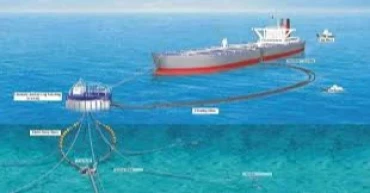
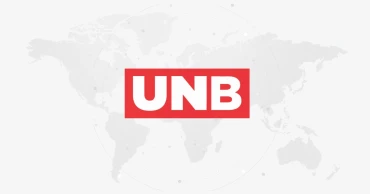
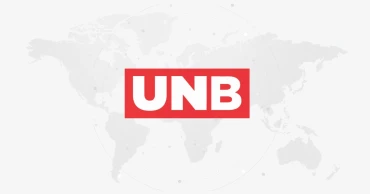
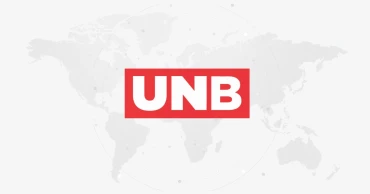
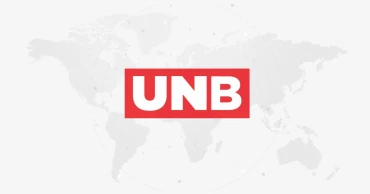
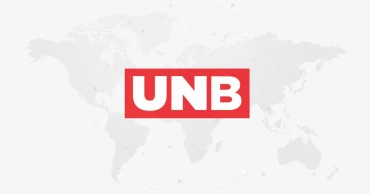


.jpg)
